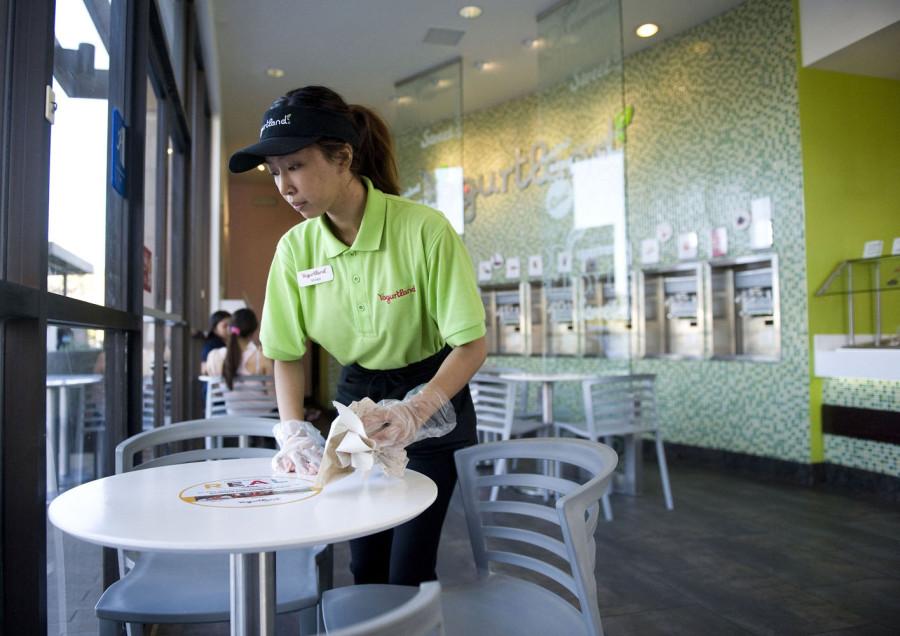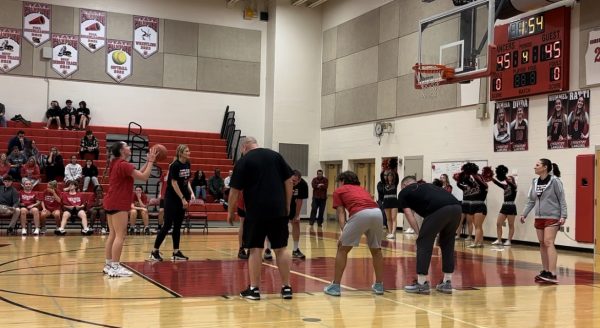Do high school students have the financial responsibility and money know-how they need?
October 19, 2015
Get a job! In high school, most students consider part-time employment, either as a stepping stone to a career or to earn money for expenses.
Not every parent agrees with the fact that high school students should have the responsibility of managing money. Some parents could be paying everything for their children. Others may not.
High school students whose parents pay for all expenses may not have the financial practice they need. They need be ready to manage their own money if they plan to attend college or move out of their parents’ house.They’ll need to know the amount of money that will have to be earned to pay for taxes, rent, food, and other expenses when they are in the real world.
A whopping 80% of high schools students have a part-time job according to a survey by Citigroup and Seventeen Magazine. Students work an average of 19 hours a week. How are they using the money they earn?
Teenagers taking on jobs are using the money they earn to pay for personal items for themselves. They are also contributing to college expenses. The only area where students are less likely to pay individually is for cell phone expenses.
A Lancer Media poll about financial responsibility revealed working students paid for entertainment/meals. The next highest responses were gas, followed by clothes. Only 11% said they paid for car insurance.
Jen Boyd, mother of a freshman, a junior, and a recent graduate said teaching finance is important. “It teaches them responsibility and the value of money. It also enables us to guide them so they can start out with a good foundation of how to budget and save money,” said Boyd. “Each of my children has their own savings account and pre-debit cards. They are responsible for keeping track of how much is in each account.”
Brian Fay is the father of a senior and a 7th grader. He agrees financial instruction is necessary “so they can learn how to manage money. It is a life skill. They need to learn about managing their money as soon as possible.”
Studies show that the students who work to pay for things they want are more likely to understand the value of a dollar. Students who work to pay for their car, cellphone, clothes, etc. They will value each thing more. Studies also show working for each of these things students will start to value an education more.
In the Lancer Media poll, all of 100% people who stated they had a job said they had a GPA ranging from 3.5-4.0. Clearly, students who have jobs are still managing their academics.
A U.S. News and World Report article reveals that the first step for teenagers to understand finance comes from discussing finance with their parents. U.S. News and World Report also found that teachers can and should help with financial understanding as well.
In a article newspaper published entitled The Patriot Ledger, says a high school in Massachusetts decided to do something about the high school students who were worried about managing their money in college. The high school’s Parent Teacher Student Organization (PTSO) joined together with Harbor One Bank, the Sharon Credit Union, and “The Law, Your Money and You” cable TV show to create a Reality Fair. which the seniors and juniors attended.
Maryland Public Schools now require students to take the class that teaches personal financial literacy. A Maryland State Department of Education report in 2012 found that, “ Today, more than ever before, graduates must be financially literate in order to be prepared for college, careers, and responsible living. This is why Maryland stakeholders acted early to ensure that all students have a strong foundation in financial education to make informed decisions and accomplish their goals.”
Just as important as math, English and science, schools are now aware that part-time jobs, financial responsibility and financial literacy are important for success.













